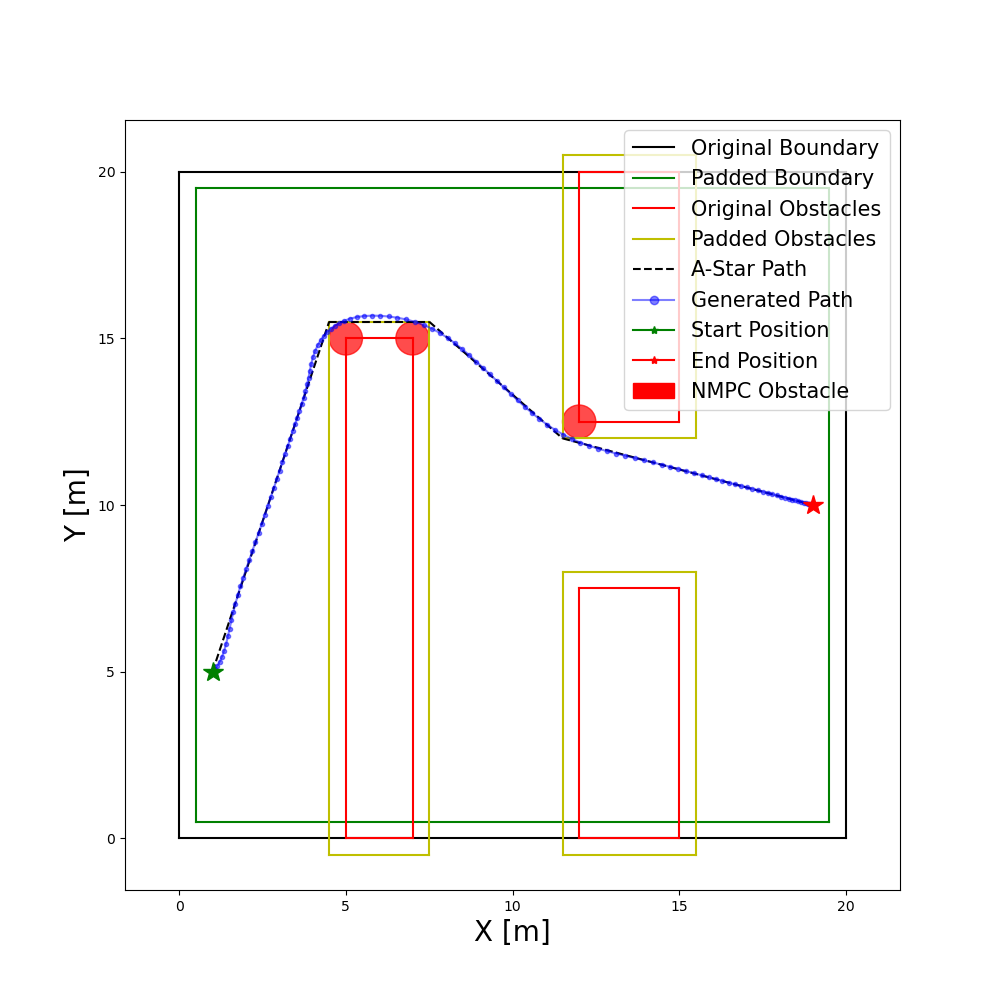Project in the course SSY226 Design project in systems, control and mechatronics given the autumn of 2020 at Chalmers University of Technology. We've implemented an algorithm that generates a smooth, collision free trajectory for a differential drive robot.
The NMPC formulation is solved using open source implementation of PANOC, namely OpEn. Follow the installation instructions before proceeding.
To install all neccessary requirements, easiest way is to create an environment using conda by navigating to the root of this repo and run
conda env create -f env/environment.yml
Activate the environment using
conda activate ssy226
If the environment file is changed, simply update an existing environment by running (at root of repo)
conda env update -f env/environment.yml --prune
The algorithm is explained in detail in the accompinying (unpublished) paper. In summary, the algorithm models the environment as polygons and find the shortest path using A*, implemented in the extremitypathfinder python package. This path is then followed by an NMPC controller to generate a smooth trajectory for a differential drive robot.
The algorithm can be run by running main.py, make sure to set build=True if the NPMC solver hasn't been built before. By changing g = graphs.get_graph(complexity=11) to a different complexity, different predefined scenarios can be run. Different configuration exist in configs and which to use is specified by changing the filename config_fn = 'default.yaml' to something different. Note, some of the config parameters require a rebuild of the NMPC solver to take effect.
New scenarios can be added to graphs.py and tested by changing selected scenario in main.py as described above. Scenarios can easily be created by using the GUI implemented in draw_graph.py and appedning the output to graphs.py.
Feel free to open Issues and/or Pull requestes for bug reports/improvements.
